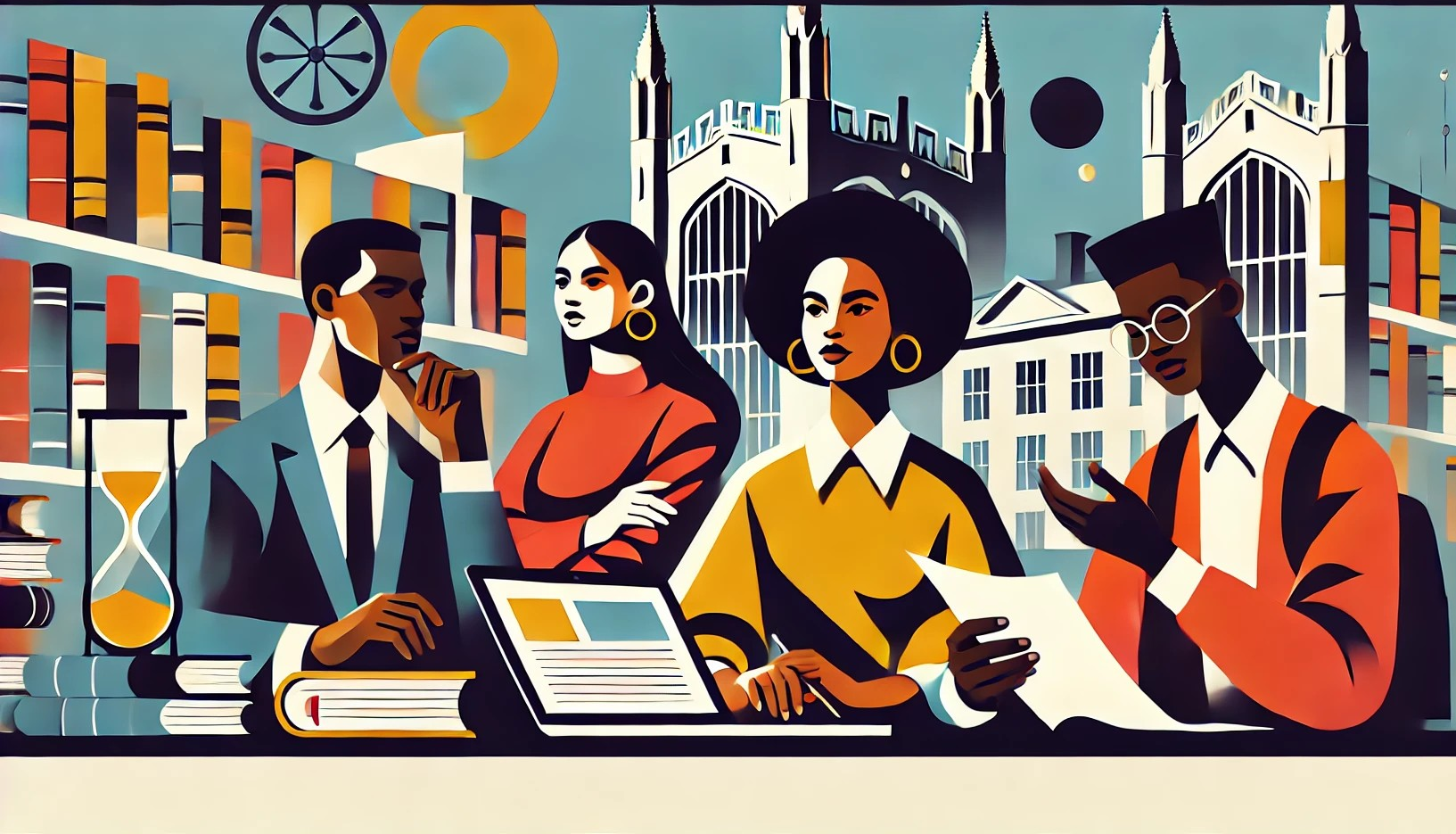
In recognition of the limited spaces where we can celebrate the innovative, exciting and impactful research being undertaken by Black postgraduate students at the University of Cambridge across various fields, we have scheduled a new Black Postgraduate Symposium series, with three separate events across this academic year.
These will be relatively informal events with a friendly audience, along with an expectation that presenters adapt their delivery for a non-disciplinary audience.
Easter Term Symposium Programme
We are delighted to invite you to the final Black Postgraduate Research Symposium of the academic year, hosted by the Black Advisory Hub. This event offers a space to engage with the innovative work of Black postgraduate researchers at Cambridge and to foster a supportive academic community.
- Date: Thursday 29 May
- Time: 5–7pm
- Venue: Lucia Windsor Room, Newnham College
- Enquiries: contact@blackadvisory.hub.cam.ac.uk
Join us for an evening of research and discussion featuring presentations from:
- Maya McFarlane (PhD, Sociology): Theorising ‘Blackness’ at Historically Black Colleges and Universities
- Eireann Attridge (PhD, Education): Social Mobility, Identity & Class Contradictions
Refreshments will be provided. If you would like to attend please RSVP (before midday Thursday for catering purposes). Please email if you have any questions about attendance or access to the venue contact@blackadvisory.hub.cam.ac.uk
All are welcome – students, staff, and friends of the Hub. We hope to see you there!
Maya McFarlane (PhD, Sociology): Theorising ‘Blackness’ at Historically Black Colleges and Universities
Current sociological literature on Black students experiences of elite higher education focus on case studies of predominantly white universities, largely theorising Blackness as a linear object of exclusion and marginalisation. However, there is currently little work which seeks to analyse Historically Black Colleges and Universities (HCBCUs) as a site of identity construction in the same way. I gathered ethnographic data in Washington D.C. during the United States presidential election, exploring students’ understandings of Blackness, social class and belonging during a time of unprecedented social division. Based on qualitative data from a six month ethnography and thirty semi-structured walking interviews with students at Howard university, I argue that a ‘phenomenological tapestry’ of Blackness is constructed within HBCU spaces. The data reveals that the racialised, classed and gendered positioning of HBCU students influences the manner in which they are able to take up space and thus reap the affective rewards of being in a ‘room of one’s own’. We can therefore identify a phenomenological tapestry of varying embodiments of blackness, weaved together through various social processes. I thus contribute a novel theoretical approach to the field, applying the underutilised framework of racial phenomenology to an analysis of Black space-making.
Eireann Attridge (PhD, Education): Social Mobility, Identity & Class Contradictions
In this paper I present the findings of a qualitative research paper within the PhD project: A Mixed Methods Investigation into Understandings and Conceptualisations of Social Class and Social Mobility through Higher Education. I present the emerging findings of a qualitative research paper that explores the ways in which young adults make sense of their own journeys of social mobility and/or social reproduction. I discuss the complex affective and emotional response that comes with these supposedly universally positive experiences of upward mobility via higher education.
Example Presentations from previous symposia
